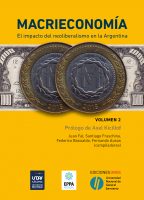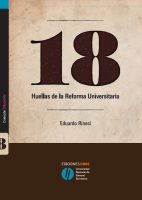Prácticas de pastoral aborigen y juridización de derechos indígenas en Argentina. Un análisis de la región del Chaco (1965-1994)
Under the term aboriginal pastoral this thesis designates an emerging historical subject during the second half of the sixties in Latin America. Aboriginal pastoral is a kind of ecclesiastical indigenism with Christian roots and an ecumenical sense that, unlike other indigenous missions, did not intend to convert the natives to Christianity but to "promote" their "development" and contribute to their "liberation". Aboriginal pastoral missions were enrolled in the conciliar renewal and were tensioned between developmentalist precepts and ideologies of the time.
The thesis examines a particular case of this historical subject: the social network concocted by the late sixties and early seventies in the area covered by the center and west of the province of Formosa and the west of the province of Chaco (Argentina).
The central hypothesis argues that towards the end of the sixties the emergence of a network of aboriginal pastoral in the chaqueña region, the contribution it made on the aggregation of indigenous demands and the further development of this dynamic, formed part of the construction of recent indigenous laws in Argentina.
The challenge is to explain the historical dimension of the building of codified rights. This involves observing the legal sanctions that recognize the rights of minorities (while they enable new spaces of fighting for indigenous movements) as part of the historical processes where they are inserted and become possible.
Under the term juridification the thesis conceptualizes the historical process by which certain realities (social, economic, cultural, etc.) are problematized, are built as political demands of specific groups or sectors of the population and are finally embodied in legal standards developed to solve these problems. The socio-historical research shows that the network of aboriginal pastoral in the chaqueña region worked in the interstice of the relationship between state and native peoples. From there they were part of the implementation of indigenist state policies, while at the same time they helped to build spaces of socialization and politicization of indigenous people. By the eighties, the same interstitial position enabled agents of aboriginal pastoral to participate in the building of indigenous legislation: the enactment of the Comprehensive Law of the Aboriginal in Formosa (1984), the enactment of the Law of the Aboriginal in Chaco (1987) and the incorporation of Article No. 75 in the National Constitution of Argentina (1994).







